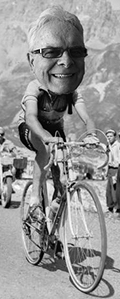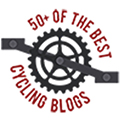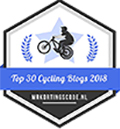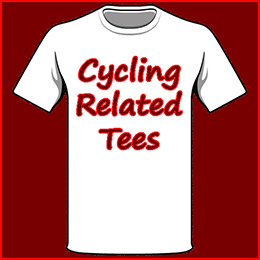My Father and his Imbecile Son
 Sun, June 20, 2021
Sun, June 20, 2021  My father was born on December 1910, he died in June 1996.
My father was born on December 1910, he died in June 1996.
Fathers are good, bad, or absent, either physically or emotionaly. My father fell into the last category.
This being Fathers' Day, it would be easy for me to write paragraph after paragraph of negativity about father, but the truth is that this man influenced and shaped my life more than any other.
So instead here is a true incident that happened when I was sixteen years old. I had only just left school and started work a few months earlier.

I was confused. How was a somewhat immature sixteen year old boy supposed to react? My mother had just told me that my father had been severely burned in a work related accident, and my first thought was, I hope the bastard dies.
I had just ridden my bicycle the five miles home from work the way I always did, as fast as possible, a heart pounding, lung bursting flat out sprint. I put my bike away in the in the garden shed, and walked indoors. I was sweating, pumped up with adrenaline, breathing heavily though not out of breath.
Once inside it was immediately clear something was wrong, my mother was still wearing her hat and coat, for one thing.
“David, your father’s been burned at the iron foundry.”
“How?” I asked.
“First thing this morning, he and another man opened the door to the blast furnace, there was an explosion, and all the hot coals came out and completely buried both of them. Other workers pulled them out right away, but they were both burned from head to toe.”
I stood there trying to evaluate the situation, could my father possibly die? The thought had never occurred to me before that moment; my father was this awful entity that was always there. I avoided him as much as I could, but I had to contact him at some point, and it was never good. Now I’m hearing that he has been severely burned. People die from that, don’t they? I was contemplating life without my father being there, I could hardly keep from cracking a smile, what confused me was my mother’s demeanor as she explained what had happened. She was frantic, beside herself with worry.
For the last seven years, since my father came home from the war, whenever I was alone with my mother she would unload on me all her frustrations concerning my father. She would go into detail about the physical abuse, along with the verbal and emotional abuse she endured. This had always fueled my hatred towards my father even more, and I always assumed she hated the man as much as I did, after all I suffered the same abuse, and I could relate what it was like. Now I saw a different side, the obvious concern, and for the first time the realization, My God, she really loves him.
“He’s at the Luton and Dunstable Hospital,” She told me. “I’ve been there all day. Someone from the foundry came and told me this morning, and gave me a ride there. I just got off the bus not five minutes ago. If you hurry you can catch the same bus when it goes back into Luton.”
“But I don’t want to see him, what can I do?”
“David, you must go and see him, he’s your father, he’ll think you don’t care.”
I wanted to say, That’s right I don’t care, but didn’t. “But I was going to get at least forty miles in on my bike tonight.” I said in a somewhat whining tone.
“How can you think about riding your bike when your father is lying there in so much pain? Anyway, you have to go, he asked me to buy cigarettes, you have to take them to him.”
On the table was a paper bag with several packets of cigarettes inside.
“Alright, but I won’t catch the bus, I’ll ride my bike. I’ll actually get there quicker than riding two different buses. But I need to eat first.”
“I’ll make you a sandwich.” My mother said as I went to get out of my work clothes, wash, and change.
Whenever I rode my bike I carried a small canvas bag, called a “Musette.” In it I carried tools, spare batteries for my lights, and my wallet, sometimes food if I was going on a long ride, tonight it would also carry cigarettes.
Riding towards the hospital, not at my usual fast past, but rather slow. I was deep in thought. Not really wanting to do this, and not knowing what to expect when I got there. I left my bike by some railings near the front entrance to the hospital, and made my way up the steps and though the double glass doors. Inside at the reception desk I told them who I was, and asked where I would find my father. I was directed to a ward on the second floor.
I was wearing a regular pair of trousers, and several layers of assorted old shirts and sweaters, topped off with a heavy sweater that my mother had knitted in my cycling club colors. I was rather proud of this “Badge” of a cyclist, along with my white socks and cycling shoes. I wore spring steel trouser clips to keep the bottoms from fouling the bike chain. I left these in place, a further symbol, along with the rest of my “kit,” that I was a real cyclist and had a real racing bike outside, not just some bloke who had arrived on some old sit-up-and-beg roadster bike. The metal cleats on the bottom of my cycling shoes made a clip-clop sound on the stone floors as I walked along the corridor towards the ward.
Inside the long narrow hospital ward with beds on either side, I looked for my father. Suddenly, I heard his voice call my name. From that moment it became a surreal experience as I walked towards this unrecognizable figure, with my father’s recognizable voice coming from it. Dressed in a loose fitting hospital gown, a blackened and red raw lump of meat sat where a head should be. As I came closer I next recognized my father’s eyes. Every trace of hair was gone; from the head, eyebrows, even the eyelashes were missing.
“Did you bring cigarettes?” I opened my musette bag and handed him the paper bag. He immediately opened a packet and lit one up. Now the vision before me was even more bizarre, as a white cigarette by stark contrast, stuck out from this blackened piece of meat that was now my father's face. His right forearm and hand had miraculously been spared from the fire, but the rest of his body was terribly burned.
One thing was certain, he was not going to die, and for whatever reason I was now okay with that. As much as I hated him, I had never wished him dead. It was only when the probability had presented itself, I had contemplated what it would be like if he were no longer there.
This was now an awkward situation however, he and I never sat and held a conversation, now I didn’t know how to react. He just chit-chatted about this and that, and one thing became clear to me. He must have been in terrible pain, but he would never show it. To do so, in his eyes, would be to show weakness and he would never do that, least of all to me.
A nurse came to the bed side to check on my father. “This is my imbecile son.” He said, waving his good arm towards me. It was the way he always introduced me to strangers. The young nurse smiled awkwardly in my direction.



















Reader Comments (11)
Dave, I'm sorry you felt the need to post such a story on Father's Day. I am afraid I would have a similar one to relate. We need a Victims of Unfeeling Fathers Day...
Great story Dave -
Just to break the tension from a very tense, personal story, I thought the plot twist in all this was going to be that in the end, someone swiped your bike.
Isn't it curious that this story has drawn fewer comments from Dave's readers than one about bottom bracket height or angels on pinheads... Many of us must have had strained relationships with our fathers just as Dave had. Many of us are still carrying the burden of that disapproval down through the decades. Why is it easier to respond to stories about knee-over-pedal-spindle for chrissakes?
My dad was born in 1918, and he passed away when I was 11. The feelings you describe were very familiar to me. As a grown man in his 50s and having
successfully raised three sons, I had to wrestle with the ghost of my father as they grew. Your father loved you, he just could not show it in a way you could understand. That kind of mindset was an artifact of the way some people were brought up back then. People were very different…. Hard as nails.
Maynard and John,
We are all products of the life we have led, where we came from, mistakes we made, etc., etc. My father gave out money in leu of affection, he could be very generous and paid for my bikes. I rode those bikes hundreds of miles just to stay away from home and avoid contact with my father.
When I started racing, all those miles made me strong, and I did well. For the first time in my life, I had people telling me I was good at something. Even my father was proud when I got my name in the local paper. He had even introduced me to someone he worked with who was a cyclist and got me into a local Cycling Club. If it had not been for my father I would not have got into cycling, and I would not be writing on ”Daves Bike Blog” today.
I once knew a man who was the son of a highly successful and wealthy man. He always felt he was a failure because he could not live up the high standard his father had set, and as a result was a drug addict and had been in and out of jail several times.
Another I knew was the born of a drunken one-night-stand, and his mother did not know who the father was, and he obsessed over what he didn’t know, and was a total mess as a result. He blamed his mother, the one person who loved him so much she had raised him as a single parent.
The old saying of, “What doesn’t kill you will make you stronger,” comes to mind. I was not looking for sympathy, but simply engaging in a exercise of creative writing, telling a true story, including the feelings of an immature sixteen-year-old as I remember them.
Those who had a good relationship with their parents be grateful and thank them. Those struggling with a less than perfect relationship with a parent, my advice would be, forgive them and let it go. No matter how hard you try the past will never improve.
Children don’t come with an instruction manual, parents usually do the best they can, or the best they are capable of. Many fail miserably, but no one ever says, “Let’s have a child just to fuck with its mind.” There comes a point in a person’s life where one must stop blaming others and take responsibility for their own happiness.
Dave
Josh,
No my bike didn't get stolen. This was 1952 and you could leave a bike or a car, or even your home unlocked. No one would steal it. What a wonderful time, I am glad I got to experience that,
Dave
Do you think the war contributed to his treatment of you and your mother?
Douglas,
Yes I am sure my father's war time experiences had a adverse effect, but these were different times. In the 1940s and before schools used corporal punishment, (The cane.) and parents slapped their children. Some carried it to extremes and some men beat their wives. People accepted it and looked the other way.
Some things of that era were good, like being able to leave your bike unlocked, but other things were not so good. But like I said it is pointless the blame the past for today's problems.
Dave
It wasn't till years after the fact that I realized that my father was trying to do the right thing, he was just doing it in the wrong way. Like you said Dave, no owners manual.
Do we get stronger if the road is always downhill? When does one get off the electric-assist bike and go back to pedaling?
Does anything useful come from constant praise and adulation? Have you ever taken a bike apart to see how it works? What is the last book you have read, and not listened to it being read while you drive?
Yeah, the saying goes “May the wind be always at your back”, but on the road of life I have never found that the case. I can’t wait to ride up the next mountain. And yes, it took years to get even a bit proficient on my bike, when I look back. Same with being a Swiss-Screw machinist.
The thing is, if my father was proud of his son, I never heard. But it did not matter, because the work, the time put in, and the feelings from life said it for him.
Maybe that comes from looking back upon a time when I could not.
This Be The Verse
By Philip Larkin
They fuck you up, your mum and dad.
They may not mean to, but they do.
They fill you with the faults they had
And add some extra, just for you.
But they were fucked up in their turn
By fools in old-style hats and coats,
Who half the time were soppy-stern
And half at one another’s throats.
Man hands on misery to man.
It deepens like a coastal shelf.
Get out as early as you can,
And don’t have any kids yourself.